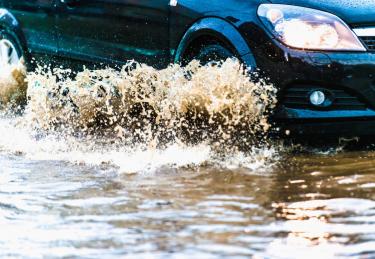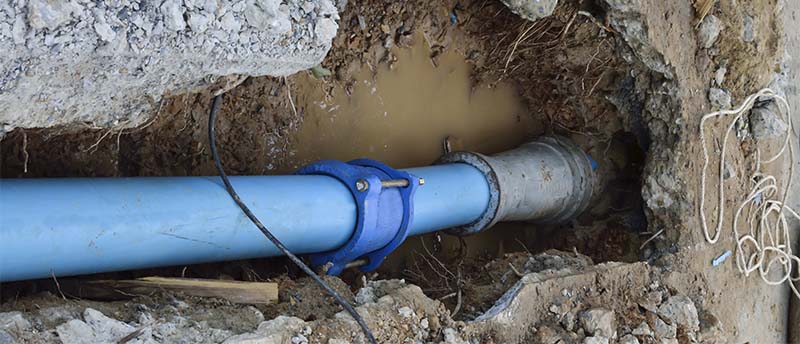Throughout the U.S., infrastructure is aging and overburdened. Systems are in desperate need of maintenance and repair, but spending on improvements to public infrastructure is at a 20-year low. Utility owners and government leaders are faced with a looming threat of system failures but are constrained by limited resources. It can be daunting to address infrastructure needs, but 4Waters can help. We provide the following services related to planning, funding, rehabilitating, and maintaining your system:
Asset Management
The first step in improving a water, wastewater, or stormwater system is gaining a clear understanding of the condition of, demands on, and costs of the assets—equipment, machinery, facilities, etc.—used in its operation. Asset Management encompasses a range of concepts that help you make more informed, better decisions regarding your infrastructure. These concepts include developing asset management plans, establishing and monitoring levels of service, assessing the risk of asset failure, and evaluating the remaining useful life of assets.
4Waters personnel have assisted numerous municipalities and utilities with implementation of asset management concepts. Our experience includes
- Asset inventory and Replacement Value
- Condition Assessment and Useful Life Evaluation
- Asset Data Management
- Cross-Sector Asset Management Programs
- Establishment of Level of Service
- Replacement and Rehabilitation/Retrofit Planning and Funding
- Failure Risk Assessment
- Capital Improvement Project Prioritization and Planning
Planning
A master plan includes identification of present and future needs and direction for development of a system’s facilities. The master plan is often the first step in developing a long range capital improvement program. A water master plan might identify areas of future growth and water sources, treatment capacity expansions, and distribution networks required to serve those growth areas. A sewer master plan may target areas for septic system phase out to encourage future development or plan to improve treatment processes to improve effluent quality for reuse. A stormwater master plan may address potential flooding and nonpoint source pollution impacts of an existing or proposed stormwater management system to meet increasing demands for additional stormwater capacity or to improve water quality.
4Waters engineers have been involved with multiple master plans in the Southeast US. Their experience includes assisting with creation of a Stormwater Master Plan (SWMP) for Jacksonville Beach, FL, stormwater master planning for the Beaumont area of Georgetown, SC, implementation of a watershed plan in Nashville, GA, and development and updating—including growth mapping—of a 20-year water and sewer master plan for the Brunswick-Glynn County JWSC. Services have included the following:

- System Inventory and Analysis
- Growth Mapping and Projections
- Hydraulic and Hydrologic Modeling
- User Input and Involvement
- Regulatory Compliance
- Capital Improvement Plan Development
- Ordinance Development
- Best Management Practices (BMP) Development
- Alternatives Evaluation
- Operational Plan and Staff Training
Funding
Identifying needed improvements is one thing. Paying for them is another. 4Waters experts can help your organization identify sources of funding to complete your necessary capital improvement projects. Funding opportunities include adjusting rate structures, identifying opportunities for efficiency, identifying and applying for government grants, and more. Having an asset management system and/or master plan in place can help by providing clear evidence to funding agencies of the need for resources, as well as your ability to effectively operate and maintain the facilities built with the awarded funds. It can also provide a clear, quantitative way to communicate needs to local governing bodies and ratepayers to justify rate increases or adjustments. 4Waters engineers can also identify inefficient systems and processes and redirect the money being overspent to capital improvement projects or other necessary operation and maintenance programs.
4Waters staff has experience funding and working on projects funded by grants/loans from the following programs:
- EPA Clean Water Act Nonpoint Source Grant (Section 319 Grant)
- EPA Clean Water State Revolving Fund
- EPA Drinking Water State Revolving Fund
- HUD Community Development Block Grant (CDBG)
- USDA Rural Development Water and Environmental Programs
Rehabilitation/Retrofit Design
Water Infrastructure Rehabilitation can directly improve the quality of delivered water, both aesthetically and from a sanitary perspective. Heavily corroded iron water mains can cause red or brown tapwater but can also deplete chlorine residual and allow bacterial growth. In addition, rehabilitation of water distribution systems can prevent pipe failure, reduce water loss from leaking pipes, and even improve fire flow and water pressure. Improving Wastewater infrastructure can address capacity issues that cause backflow and overflow that can discharge sewage and untreated stormwater directly into creeks and rivers. Many sanitary sewer and storm sewer systems are combined, causing capacity issues during periods of significant rainfall. Antiquated stormwater systems, including these combined sewers, can lead to flooding issues in homes, businesses, and streets. Stormwater retrofits to implement BMPs can mitigate flooding, reduce pollutants, and improve surface water quality. 4Waters engineers and staff have extensive experience designing rehabilitation and retrofit projects for municipalities and utilities. Our experience includes the following:
- Treatment Facility Expansion Design
- New Treatment Facility Design
- Traditional Trench Opening Pipe Replacement Design
- Trenchless Technologies including Jack and Bore, Horizontal Directional Drilling, and Pipe Bursting
- Various Lining Methods
- Cured in Place Pipe
- Separate Storm Sewer System Design
- Low Impact Development Practices




